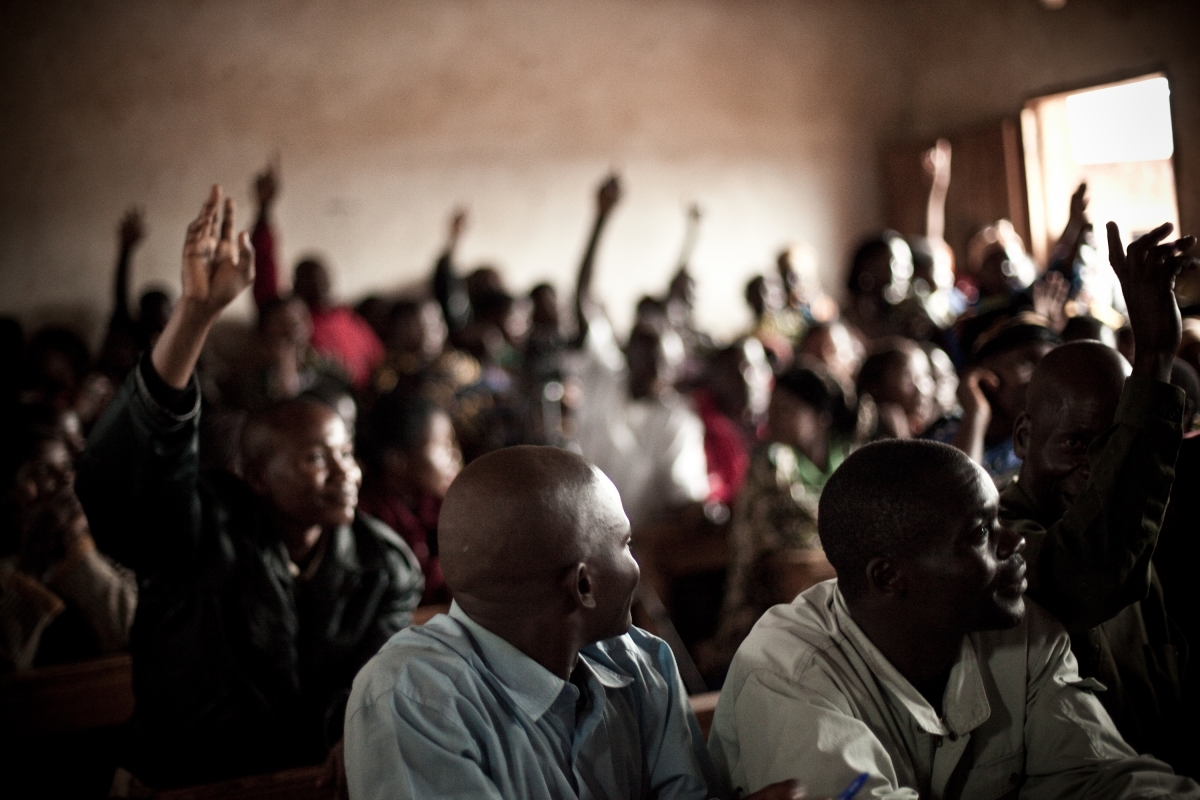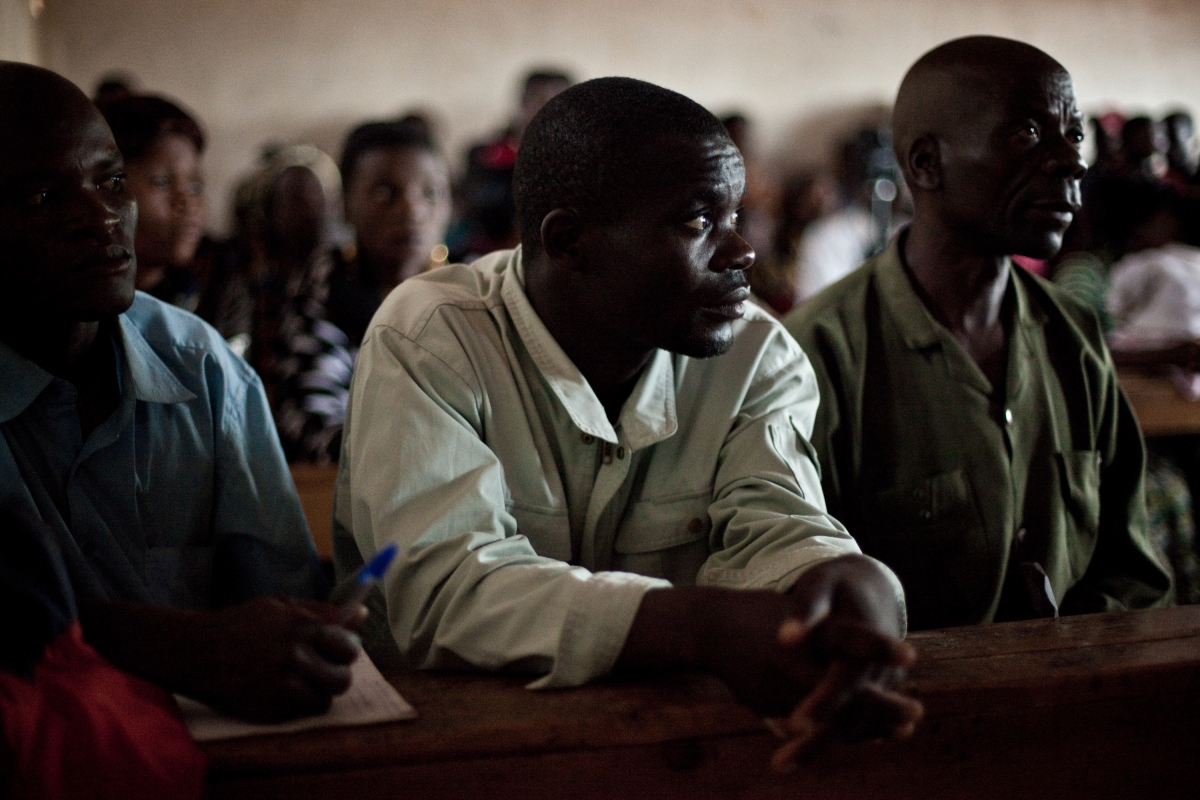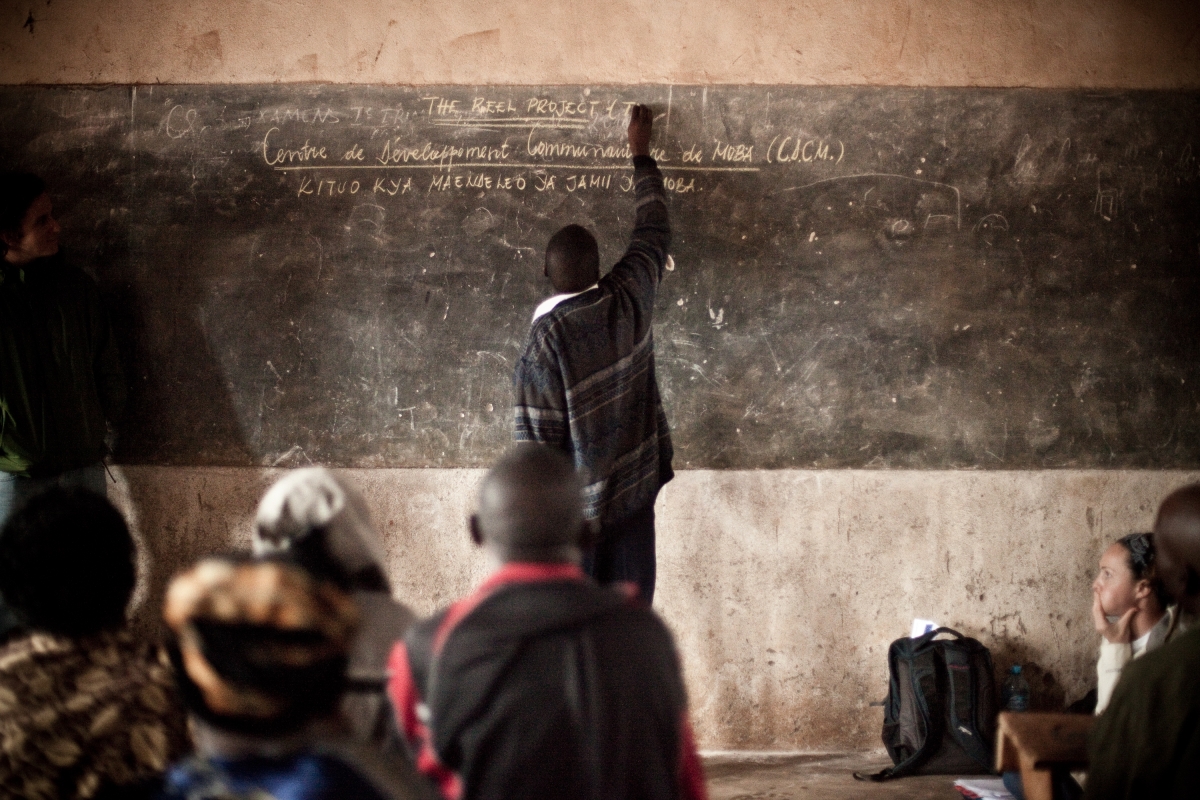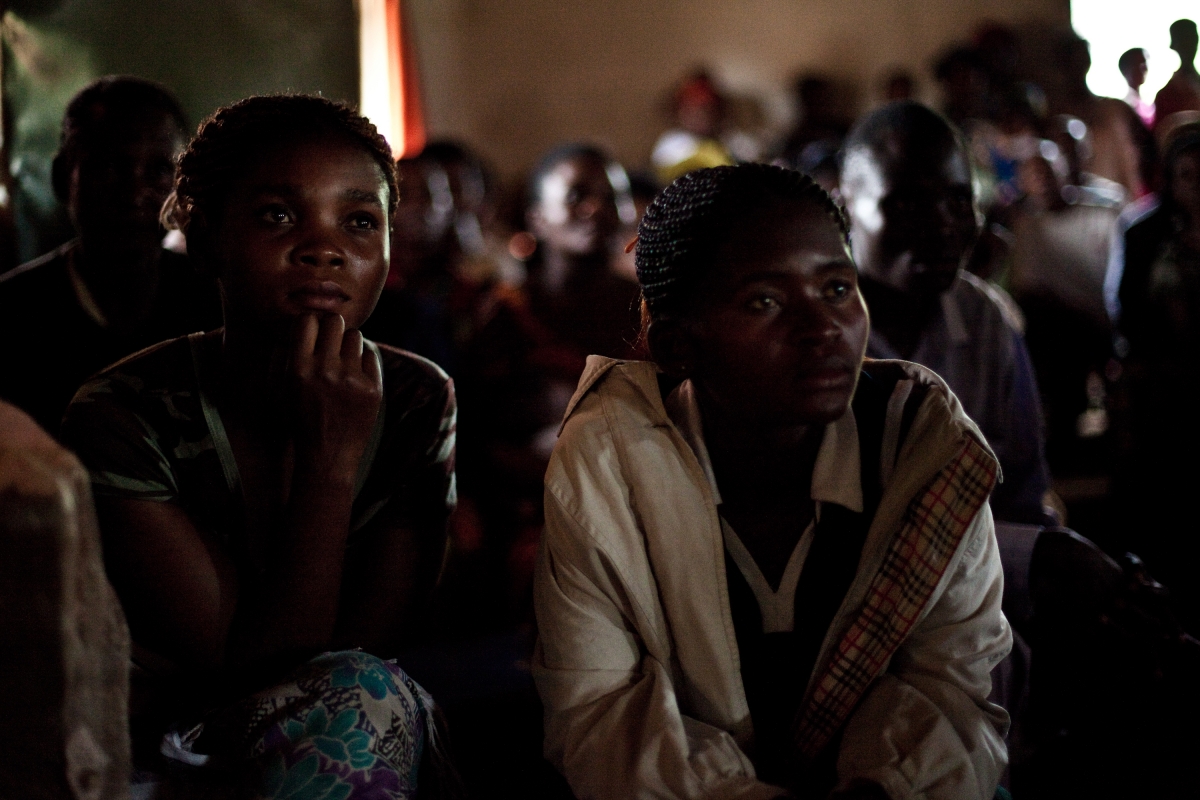Polly’s Project: MPALA

A Polly Project in Mpala (DRC): New Roofing for Six Congolese Classrooms
Mpala-Lubanda is a small town on the southwestern shores of Lake Tanganyika in the Democratic Republic of the Congo (DRC). Its colonial history is very unusual, for a Belgian army officer established a fortified outpost there in 1883 as he sought to assist Leopold II, King of the Belgians, in his bid to claim the Congo at the Berlin Conference of 1885.
When the Congo Free State was indeed granted to Leopold as his personal property as it would remain until 1908, the Mpala fortress was ceded to Missionaries of Our Lady of Africa, better known as the White Fathers because of their robes. Seconded by White Sisters in 1898, the Congo’s first entry-level seminary was founded as a secondary school at Mpala Mission to complement a flourishing primary school and a medical clinic. In particular, the Sisters offered literacy to Congolese girls. After many years when civil unrest prevented educational opportunities in Mpala, the Sisters’ now-dilapidated classrooms are in use once again.
Through a Polly Project, six classrooms will be rehabilitated starting with new roofs – much needed, as these photos attest (see below). A picture from the early 1930s shows a classroom in Mpala serving Congolese girls, the second the same room where co-ed secondary schooling was underway in November 2022.
Why Choose MPALA For A Polly Project?
In the mid-1970s, AL Roberts undertook more than three years of doctoral research in Mpala-Lubanda, leading to a PhD in socio-cultural anthropology; he has recently retired as Distinguished Professor of World Arts and Cultures at UCLA. AL’s late wife Polly (Mary Nooter Roberts, d.2018) undertook two years of research in the DRC and another in Belgium in the late 1980s for a PhD in African Art History.
She was Professor of World Arts and Cultures at UCLA was well as a museum professional, first as senior curator of the Museum for African Art in New York, then deputy director of the UCLA Fowler Museum, and finally as consulting curator of African arts at the Los Angeles County Museum of Art (LACMA). Polly and AL’s studies of African humanities in the DRC, Senegal, and Mauritius permitted them to co-organize traveling museum exhibitions, co-author prize-winning books and scholarly articles, co-teach university courses, and co-deliver lectures around the world.
Polly’s broad recognition as a compelling teacher able to reach every audience includes the Lifetime Leadership Award of the Arts Council of the African Studies Association and the Dai Sensei Award (“Master Teacher” in Japanese) of the Ethnic Arts Council of Los Angeles. Polly also lived with metastatic breast cancer for eight-plus years, working with the Komen Foundation to reach out to women experiencing similarly dire difficulties. A project to further education in Mpala will be dedicated to Polly’s remarkably humane gifts always directed toward helping others to learn life’s beauties.


Why The Reel Project?
During her undergraduate studies at UCLA in Anthropology and International Development, Krista Barnes traveled to Zambia in 2007 where she had first-hand experience with refugees from civil strife in Eastern DR Congo. She was moved to the point of founding The Reel Project as a 501(c)3 non-profit organization in 2008 that provides education, development work, and other assistance to refugee and post-conflict communities in the DRC and, now, several other countries with similar needs.
As Krista enrolled in UCLA’s MA program in African Studies then chaired by AL Roberts, her work through The Reel Project took her to southeastern DRC and she was able to visit Mpala-Lubanda on two occasions on AL’s behalf since he had not been able to return there since the 1970s. Krista’s re-establishing contact with the families of AL’s old friends proved very moving: what might be done there in memory of Polly’s extraordinary dedication to teaching?
So was born an initiative to improve six classrooms in the old Mission, making them safer and more conducive to the joys of learning.
Polly’s Project: MPALA, NEEDS OUR HELP!
An initial gift of ten thousand US dollars offered in Polly’s memory is permitting the school roofing project to begin in Mpala-Lubanda as of March 2023. At least twice this amount will be needed to further refurbish the six classrooms and school yards, provide teaching supplies such as a small library and training in use of online resources via cell phones (and reception is already available in Mpala-Lubanda), and to investigate opportunities to upgrade the tiny – and, frankly, inadequate – medical clinic of Mpala-Lubanda.
Might you care to join us by providing your tax-deductible financial contribution through The Reel Project?
As a Swahili saying has it, haba na haba hujaza kibaba: “Little by little one fills the vessel.” Every little gift is welcome, and as people at Mpala-Lubanda would say, again in Swahili, aksante mara kumi na salama sana kwa nyumba “thank you ten times and blessings upon your home!”
To make a tax-deductible Donation to Polly’s Project: MPALA, Click on the Donate Button if you want to give your support to an amazing cause.

